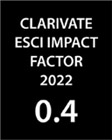Partnership in the Regional Policy of the European Union
DOI:
https://doi.org/10.17649/TET.14.1.555Abstract
This study will only examine the principle of partnership from the four reform principles (concentration, programming, additionality and partnership) however the principles of programming and additionality will be mentioned because of the very strong interaction between them. Connecting more and more participants of regional development to decision making and activating their contribution to financing has an influence on the integration mechanism. European integration obtains the redefining of the competence and decision making between the different levels of direction (supranational, national, subnational). The system of multilevel direction – the new participants, the regions, the local communities and other groups interested in and participating in regional development – doesn't mean that national government wouldn't be the determinant institutions of European integration. Nevertheless some statements of the intergovernmental approach have to be redefined in the international relationships. The two functions of state – regulating the institutions and orientating the political participants – are separating from each other. The common formed standards and the activities of the operating of the institutions are strong limits for the political actors. G. Marks interprets the failing position of the nation-state in the international and national policy is due to the increase of central political actors. The protection of competence of the central government no longer limits the aims of the elected party leaders have more roles in decision making process. Several levels of structural decisions have been formed. The distribution of the financial supports has been preceded by a long-winded preparatory work. The system of support application has to be elaborated properly. And finally the Common Development Framework adopted by the European Commission for the implementing of operating programs has to be managed. There is a need for close co-operation between the participating levels in the whole process of structural programming. Local and regional actors have to contribute actively to the process of elaborating national development plans, which practically means regional development planing in most EU members. Local actors have to take an interest in the harmonization process of the development framework and the elements of the contract between the national governments and European Commission. They have to express their opinion regarding the forming of the operating programs and finally they have to participate in implementing and controlling of operational programs.
Downloads
Published
How to Cite
Issue
Section
License
Authors wishing to publish in the journal accept the terms and conditions detailed in the LICENSING TERMS.






